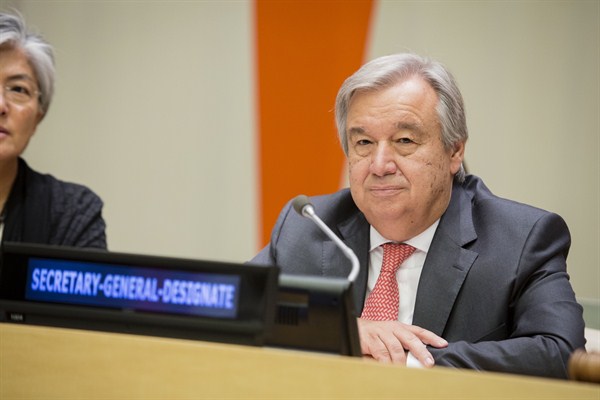Does anyone still remember this year’s race to be the next secretary-general of the United Nations? It only ended a few weeks ago, but it already feels like distant history. The victor, former Portuguese Prime Minister Antonio Guterres, is hard at work on his transition plans. Diplomats and U.N. officials are impressed. The new boss, who will take office in January, is consistently articulate and well-informed. It is odd to recall that, as recently as late September, many observers believed that Guterres would run into Russian and Chinese opposition to his candidacy, and that the contest to run the U.N. could drag on to the end of the year.
So what went right? The standard answer in U.N. circles is that Guterres was simply the best-qualified of the dozen or so candidates who came forward. There are dissenters. Many commentators remain frustrated that, after seven decades, the U.N. could not select a female secretary-general for the first time, despite the presence of several strong women in the competition. Guterres has promised to promote gender equality.
But before we forget the race, it is still worth asking three broad questions about the outcome, as the answers have a bearing on the future of U.N. diplomacy.

